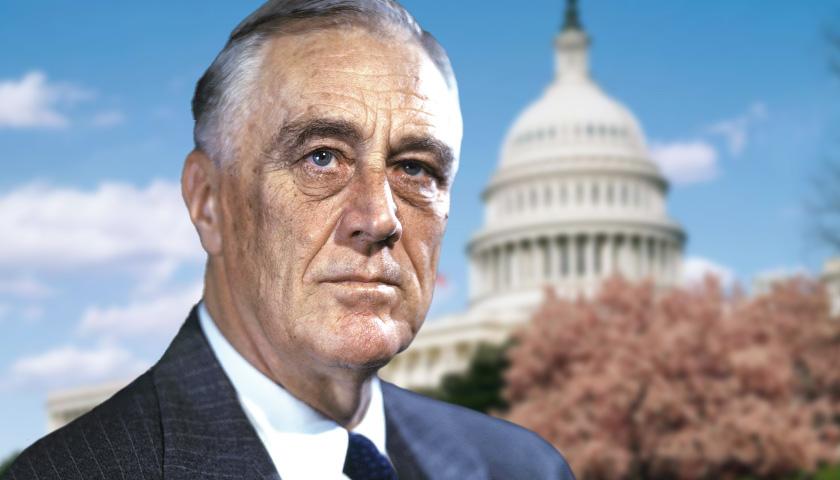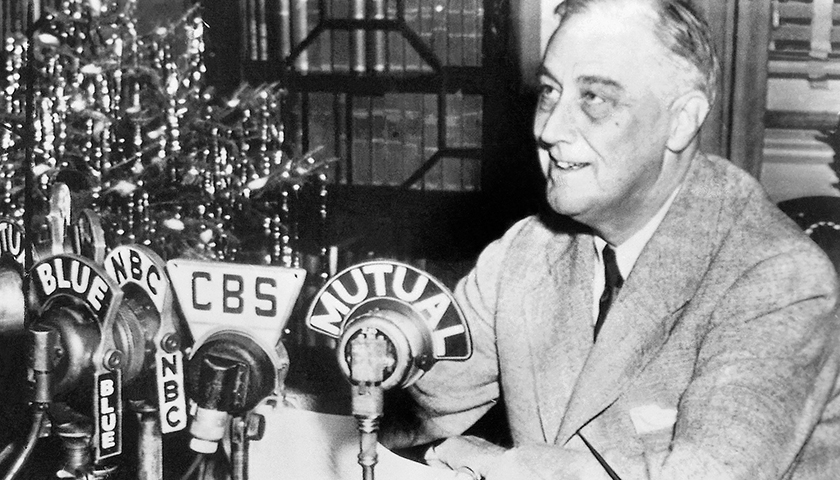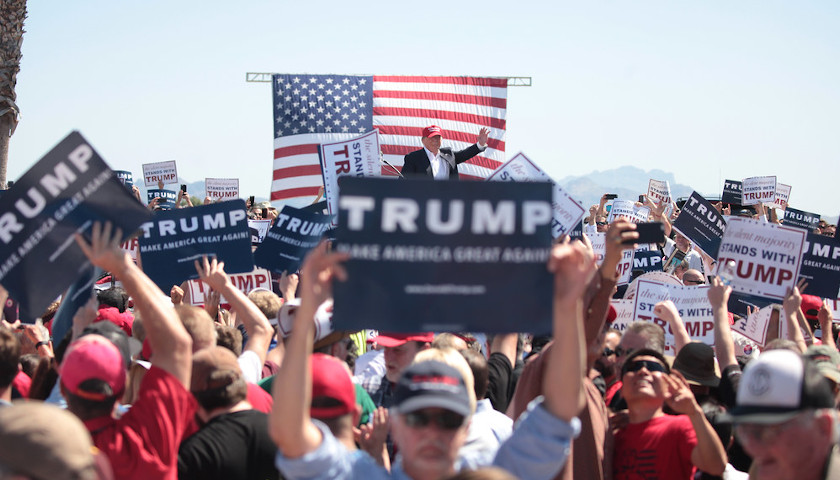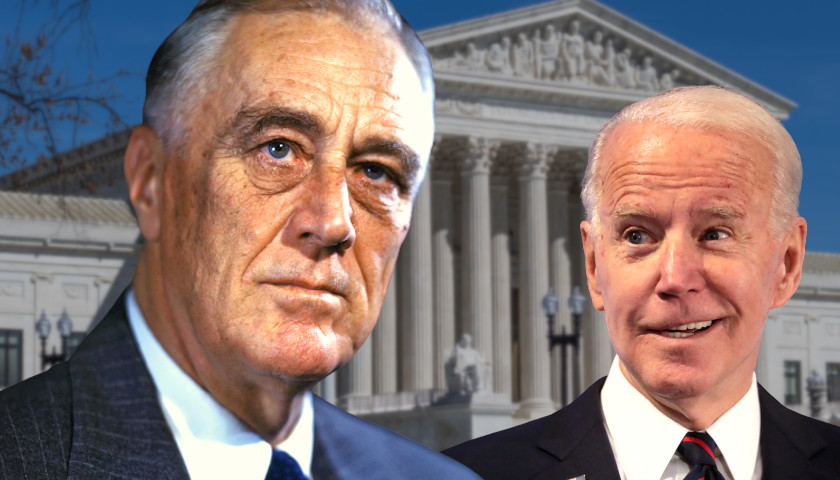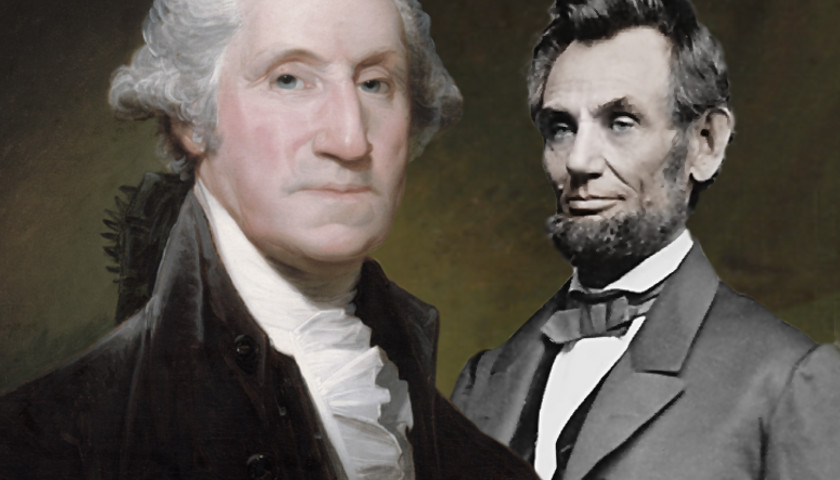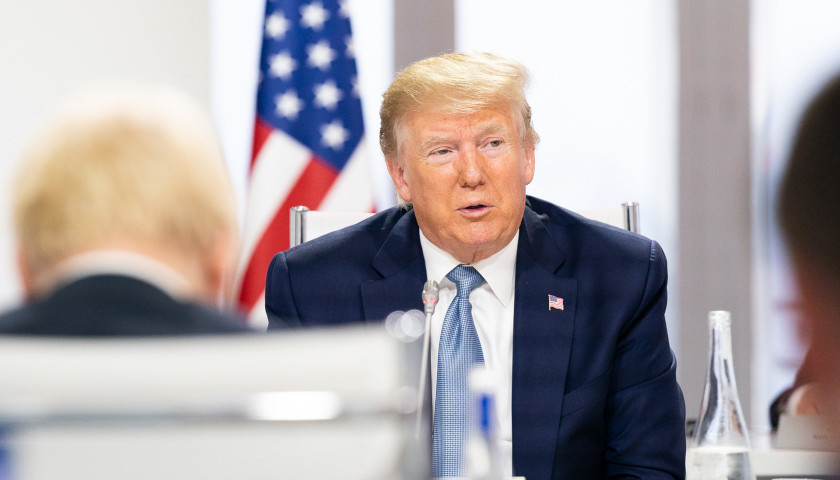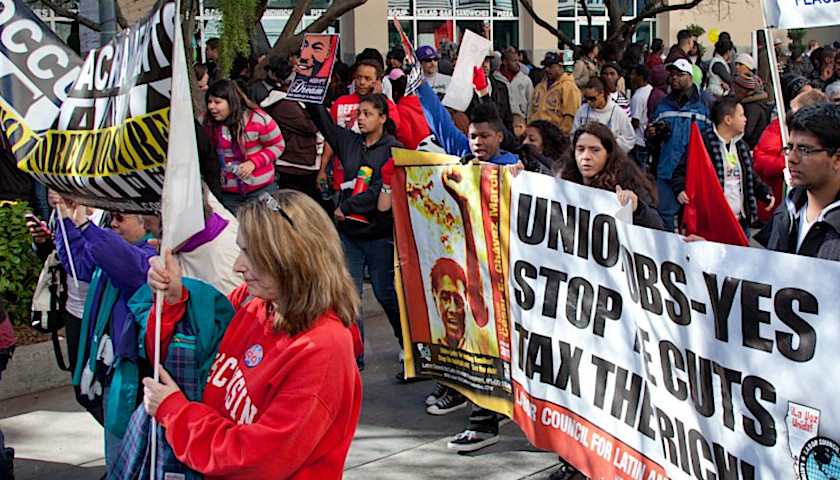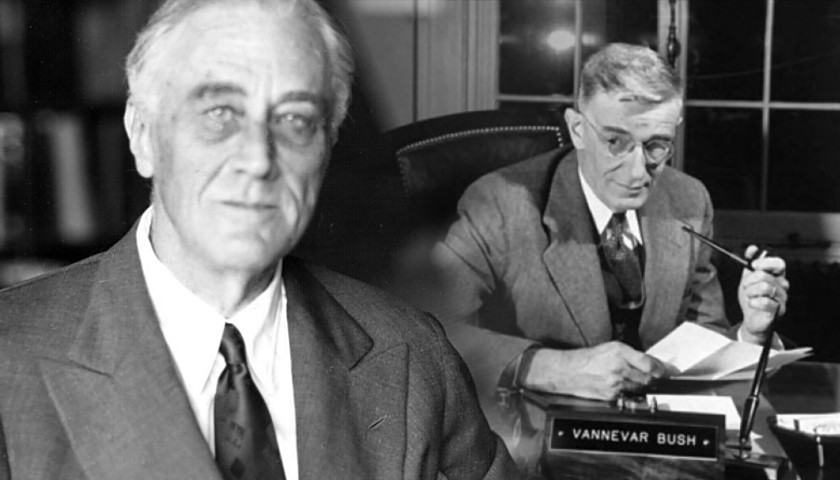Derek Leebaert writes interesting and provocative books. In The Fifty-Year Wound, he assessed the triumphs but also the costs of America’s Cold War victory, which included the growing and seemingly permanent influence in Washington of what President Eisenhower called the “military-industrial complex” and the “scientific-technological elite.” In Magic and Mayhem, Leebaert exposed the intellectual hubris and follies of our national security establishment in launching and fighting wars that we failed to win from Korea to Iraq and Afghanistan. Now, Leebaert in Unlikely Heroes, provides complex portraits of President Franklin Roosevelt and arguably his most important and influential New Dealers — Harry Hopkins, Harold Ickes, Frances Perkins, and Henry Wallace. It is a book that further undermines the conventional wisdom that Franklin Roosevelt was a great president.
Read the full storyTag: FDR
Commentary: FDR Did Not Create America’s Middle Class
This week I have a question from Ryan who asks about economic development in America. Ryan says,
I was having a discussion with an acquaintance the other day over the causes of the post WW2 economy, more specifically why the middle class grew so large compared to the past and today. My claim was that the war devastated other countries’ industries, forcing other countries to buy from the US. This combined with the return of many men from the military to the workforce was the primary cause.
He claims that while those produced a large GDP, it did not explain why the middle class grew. Instead he advocates that the primary cause was the FDR policies of wealth redistribution, high tax rates, and strong labor unions. As such, he advocates for a return to those policies today.
What would be your perspective on this and where might one go to further research it?
Read the full storyCommentary: If Biden Really Wants to Be FDR, He Should Oppose Public Sector Unions
President Joe Biden has made it pretty clear he idolizes Franklin D. Roosevelt (FDR). A painting of #32 hangs in his office, he frequently invokes the former president in his speeches, and the media often draws comparisons between the two progressives.
But as much as Biden seems to draw on FDR’s legacy, his knowledge of his positions seems to have one glaring omission. FDR was opposed to public sector unions.
Public sector unions are having a moment in the spotlight, and not in a good way. Their actions over the past year have incurred ire from all political directions. Many Americans have become aware of the role police unions play in protecting bad apples, blocking popular criminal justice reforms, and preventing transparency as extrajudicial killings and the resulting protests have demanded attention on our justice system.
Commentary: The U.S. Post-Trump Era
These are only the opening days of what is supposedly the post-Trump era, and whether the country has really seen the last politically of Donald Trump is a matter that depends upon Donald Trump. The principal Trump-hate outlets are still pleased to refer to him as “the disgraced former president” but, of course, he has not been disgraced and there is no indication that he will be.
All of the Democrats and about a third of Republican officeholders are engaged in an elaborate and strictly observed pretense that Trump was a freakish and horrifying interruption of the normal, serene, bipartisan devolution of events in Washington. Like a dreadful meteor, he came and he went, pushed into the instantly forgotten past by a united effort of civilized Americans.
Read the full storyCommentary: A Date Which Will Live in Infamy
Seventy-nine years ago today, the Japanese launched a surprise attack against the United States at Pearl Harbor in Hawaii. The devastation was immense, but the action did not knock the United States out of the war as the Japanese hoped.
Read the full storyCommentary: A Biden Court-Packing Plan Could Be Worse Than FDR’s
Still fighting off the tail-end of the Great Depression, Americans gave President Franklin Delano Roosevelt a landslide victory over Republican challenger Alf Landon in 1936. Roosevelt, keen to see his New Deal legislation brought to fruition, was frustrated again and again by the Supreme Court.
Read the full storyCrom Carmichael Poses the Question, Would FDR Have Been a Great President Had it Not Been for Hitler?
Monday morning on the Tennessee Star Report, host Leahy welcomed all-star panelist Crom Carmichael to the studio to discuss parallels between FDR’s depression and the current COVID recession and whether or not Roosevelt would have been considered a great president had it not been for Hitler.
Read the full storyCommentary: On Presidents Day, Remembering Why We Have a Strong Commander in Chief
On Presidents Day, we celebrate the life and accomplishments of our first president, George Washington, the father of our country, and Abraham Lincoln, our 16th president and one of our most renowned statesmen.
On that day, Feb. 17 this year, we should remember that the Framers of the Constitution wanted to ensure that an American president – such as Washington and Lincoln – would have the power to defend the country when the safety, security, and independence of its people are threatened.
Read the full storyCommentary: A Date Which Will Live in Infamy
78 years ago today, the Japanese launched a surprise attack against the United States at Pearl Harbor in Hawaii. The devastation was immense, but the action did not knock the United States out of the war as the Japanese hoped.
Read the full storyCommentary: Amid Facile Reports of Chaos, Prudent U.S. Strategy Emerges
Almost imperceptibly, as political discourse continues to be a discordant contest between haters and admirers of President Trump with no journalistic distinction between comment and reporting, there has been substantial progress toward an improved strategic environment for the United States and the West generally.
Read the full storySeventy-Five Years Later: D-Day Remembered by Those Who Were There
Seventy-five years ago today, the United States joined with Great Britain, the free French forces, and Canada to mount a bold invasion of the beachhead in Normandy, France as a last-ditch effort to gain a foothold in Europe against the conquering forces of Hitler’s Germany. To commemorate this significant event, President Donald Trump read the prayer President Franklin Delano Roosevelt read over the radio while the troops stormed the Normandy beaches during his Great Britain visit Wednesday. Almighty God: Our sons, pride of our nation, this day have set upon a mighty endeavor, a struggle to preserve our Republic, our religion, and our civilization, and to set free a suffering humanity. They will need Thy blessings, for the enemy is strong. He may hurl back our forces. But we shall return again and again. And we know that by thy grace and the righteous of our cause our sons will triumph. Some will never return. Embrace these, Father, and receive them, Thy heroic servants, into Thy kingdom. And, O Lord, give us faith. Give us faith in Thee; faith in our sons; faith in each other; faith in our united crusade. Thy will be done Almighty God Amen The…
Read the full storyCommentary: A Deep-Dive into the Other Deep State – Public Sector Unions
by Edward Ring When government fails, public-sector unions win. When society fragments, public-sector unions consolidate their power. When citizenship itself becomes less meaningful, and the benefits of American citizenship wither, government unions offer an exclusive solidarity. Government unions insulate their members from the challenges facing ordinary private citizens. On every major issue of our time; globalization, immigration, climate change, the integrity of our elections, crime and punishment, regulations, government spending, and fiscal reform, the interests and political bias of public-sector unions is inherently in conflict with the public interest. Today, there may be no greater core threat to the freedom and prosperity of the American people. In the age of talk radio, the Tea Party movement, internet connectivity, and Trump, Americans finally are mobilizing against the uniparty to take back their nation. Yet the threat of public-sector unions typically is a sideshow, when it ought to occupy center stage. They are the greatest menace to American civilization that nobody seems to be talking about. Ask the average American what the difference is between a government union, and a private sector union, and you’re likely to be met with an uncomprehending stare. That’s too bad, because the differences are profound.…
Read the full storyCommentary: Hubris, Betrayal, Technology, and the Fall of the Elites
by Robin Burk In ancient Greek tragedy, the hero rises to fame only to be undone by hubris, the fatal flaw of overweening arrogance. But to understand the events that continue to unfold around the 2016 presidential election, it’s helpful to look farther east. A generation before Sophocles chronicled the rise and fall of Oedipus, Confucius looked at a fractured Chinese world and argued that, above all, China needed social cohesion. Such cohesion could only come, he said, from protecting the “Five Relationships,” including that of ruler and subject. The subject must obey, for those who ruled had the “Mandate of Heaven” behind them. To defy the ruler would be to erode society. In turn, the ruler must ensure the basic well-being of those he ruled, lest he lose the Mandate of Heaven. When that happens, order unravels. And thus was born the powerful administrative elite in China, the shi. Refined in behavior and dress, the shi made Chinese empires possible. In theory, anyone could join this class by passing formal examinations. In practice, few who were not born into the class could acquire the necessary education, accent, and polished manner. Fast forward to the mid-20th century and Vannevar Bush. Head of the Carnegie…
Read the full story
